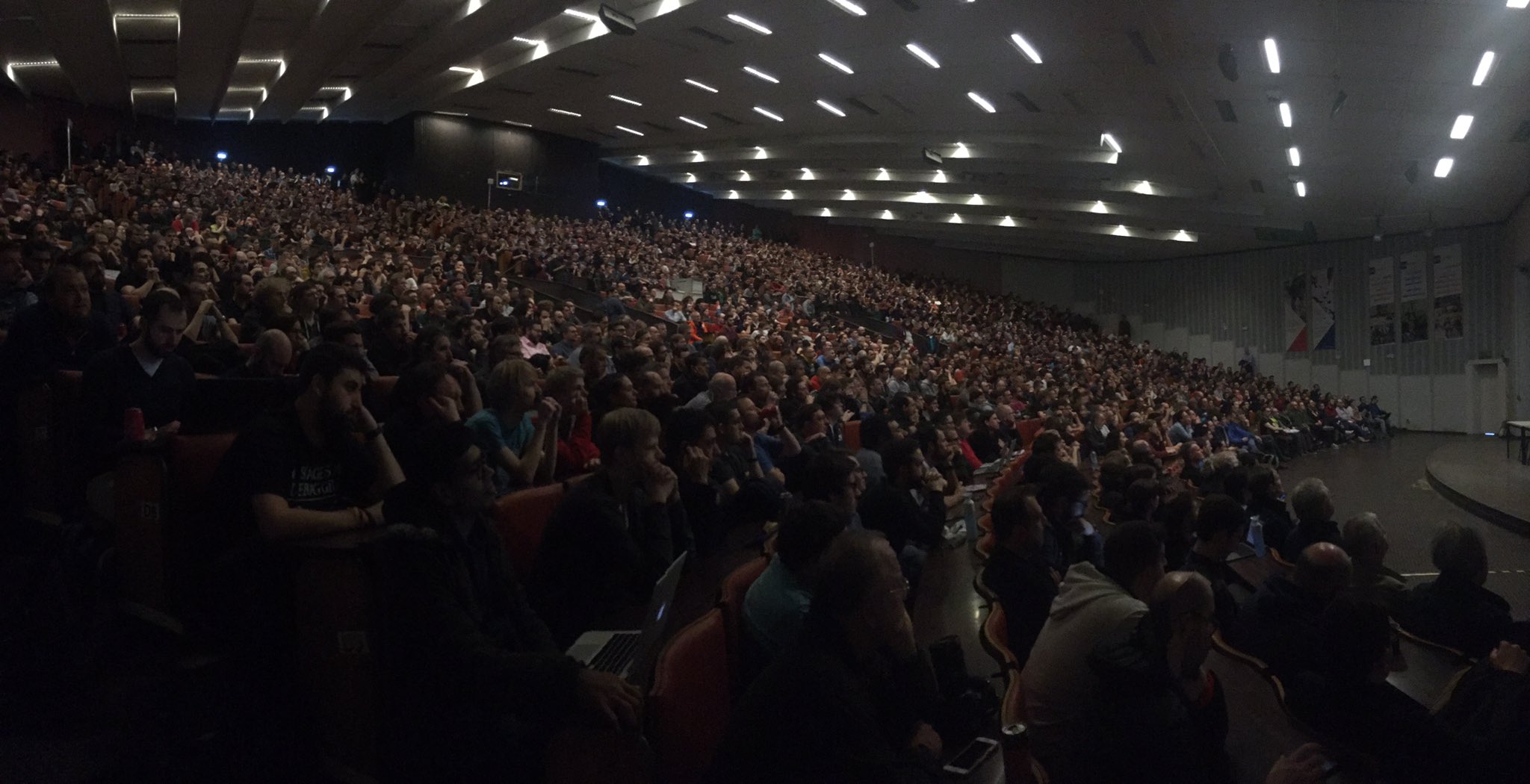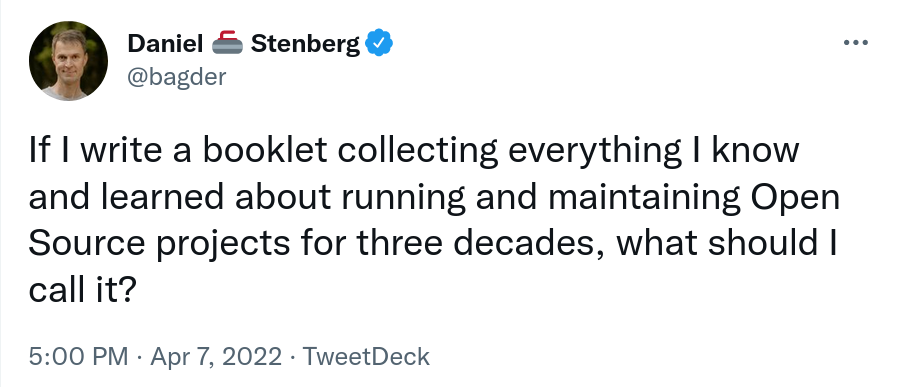– Everything I know and learned about running and maintaining Open Source projects for three decades.
For several years now, I have had a blog post series in mind to describe something about what people could expect to happen in Open Source projects. I had a few already half-started blog post drafts for some sub topics.
I couldn’t really make up my mind how to craft a series of blog posts about this wide topic in a sensible way so I kept postponing it for later. I did this for years.
A book, it has to be a book
It just dawned on my one day: the only way to get all this into a comprehensible way that also can hold all the thoughts I would like it to have, is to put it into a book. By book, I mean a document. An essay. A collection of pages. A booklet maybe. I don’t know how many words it might end up to become and I have no illusions of it ever ending up in print.
I mean to write the document in the open and provide it for free, online. Open Source style.
Day one
I grabbed my original draft for my blog series “You can expect this in your Open Source project”. I had worked on that document in the background for a long time, adding some little thing here and there over years – and it now had maybe twenty-five “lessons” listed with a short paragraph of text next to each.
I also had started three blog posts based on such lessons that were in pending state here on daniel.haxx.se in my queue of drafts.
I first copied the blog post content back into the text file from those potential blog posts, before I deleted them, and converted the entire file to markdown.
I then grouped the “lessons” I had listed in the markdown file and moved them into a few different sections. Like what to expect, code, money, people and project. I put subtitles into separate files for those five main areas.
How hard can it be?
I didn’t want to do a lot of work before I put the thing into git, and I didn’t want to run any private git repository so I had to make a new repo with a name. I went with “How hard can it be” as a working title and created the repo on GitHub. On April 6 I made the first git push with initial contents to that repository.
The first external contributor appeared after just a few minutes with the first pull-request fixing typos. Clearly people are following me on GitHub and spotted the creating of the repository and checked out what it was. I hadn’t told anyone or given any pointers.
I started expanding on subjects in the book.
Let’s get a real title
In the evening of April 7 I posted this question on Twitter:
I got a flood of replies. Lots of good ones and also lots of fun and sarcastic ones. The one that I think really talked to me the best was also the shortest: Uncurled.
- It’s short and sweet
- It includes a reference to curl without saying it is “a curl book” (it isn’t)
- The topic is a bit about “untangling” and curl is a project that probably has taught me the most of what I include here
- It sounds a little like “debriefed” from the curl project, and it is…
- I can put it up on the domain name
un.curl.dev
I figured I could possibly go with a longer subtitle that could explain the book more: “Everything I know and learned about running and maintaining Open Source projects”.
A name
I renamed the GitHub repository and added a description there. I created the URL (by adding the “un” CNAME entry in the “curl.dev” domain) and I setup gitbook.com to render the content to appear on un.curl.dev.
With a little more thoughts and then spilling some beans about my plans in my weekly report on April 8 (but not leaking the URL or repo to anyone yet) that made people provide some more ideas, I added more content.
10,000 words
By the evening of April 9, I surpassed 10,000 words of contents. Still having the contents and the order of everything pretty much in flux and not yet sorted out.
20,000 words
On April 25, I surpassed 20,000 words. It starts to look like something I can announce soon.
Getting there, but not done
The uncurled book is now in a state I think I can show off without feeling embarrassed. I believe I will still need to work on it more going forward to add and polish content and make it more coherent and less of a collection of snippets. I hope that I over time can settle down and gradually slow down the change pace. It will of course also depend a lot on the feedback I get.
Cover
Since it doesn’t exist physically and probably never will, I don’t think it actually needs a cover image, but it would probably be cool to still have one to use as an image and symbol for the book. If someone has a good idea or feels artistically inclined to make one, let me know!


